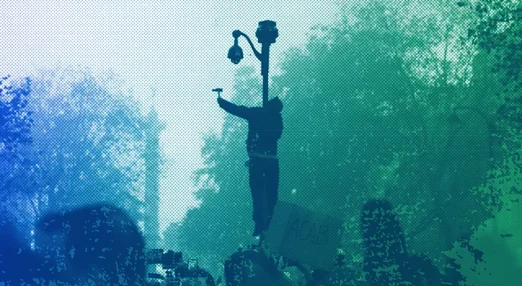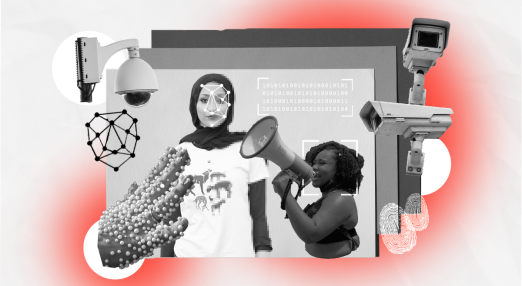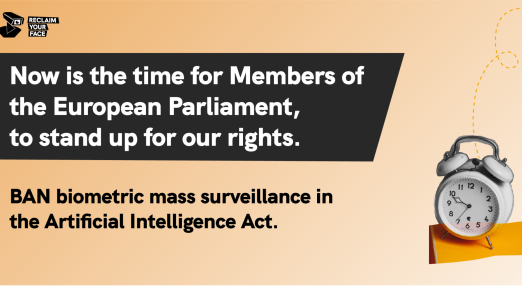remote biometric identification
Filter by...
-

Retrospective facial recognition surveillance conceals human rights abuses in plain sight
Following the burglary of a French logistics company in 2019, facial recognition technology (FRT) was used on security camera footage of the incident in an attempt to identify the perpetrators. In this case, the FRT system listed two hundred people as potential suspects. From this list, the police singled out ‘Mr H’ and charged him with the theft, despite a lack of physical evidence to connect him to the crime. The judge decided to rely on this notoriously discriminatory technology, sentencing Mr H to 18 months in prison.
Read more
-

Phone unlocking vs biometric mass surveillance: what’s the difference?
Facial recognition is one of the most hotly-debated topics in the European Union’s (EU) Artificial Intelligence Act. Lawmakers are more aware than ever of the risks posed by automated surveillance systems which pervasively track our faces – as well as our bodies and movements - across time and place. This can amount to biometric mass surveillance (BMS), which undermines our anonymity and freedom, and weaponises our faces and bodies against us. The article explores the types of biometric technology and their implications.
Read more
-

Remote biometric identification: a technical & legal guide
Lawmakers are more aware than ever of the risks posed by automated surveillance systems which track our faces, bodies and movements across time and place. In the EU's AI Act, facial and other biometric systems which can identify people at scale are referred to as 'Remote Biometric Identification', or RBI. But what exactly is RBI, and how can you tell the difference between an acceptable and unacceptable use of a biometric system?
Read more
-

Will the European Parliament stand up for our rights by prohibiting biometric mass surveillance in the AI Act?
On 10 May, EDRi and 52 organisations wrote to the Members of the European Parliament to ask them to ban the remote use of these technologies in publicly accessible spaces to protect all the places where we exercise our rights and come together as communities from becoming sites of mass surveillance where we are all treated as suspects.
Read more
